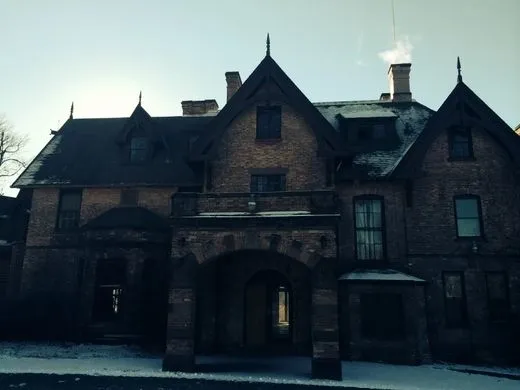Just a short drive from Beacon, New York, there’s this old grand mansion called Tioranda. It used to belong to General Joseph Howland from the Civil War days. But in 1915, it got turned into the first private psychiatric hospital in the country. Fast forward to 16 years ago, it shut down, and ever since, it’s been left abandoned. Situated by the Hudson River, the whole place covers about 60 acres, with an empty swimming pool, gym, and golf course. F. Scott Fitzgerald, the famous writer, brought his wife Zelda here for treatment once upon a time. Back then, only the wealthy could afford such care, but now it’s just a ghostly reminder of its history.

Then there’s this Scottish doctor named Clarence Slocum, who, along with his son Jonathan, changed a mental health institution into Craig House. They were all about modern methods of treating mental health issues, like spending lots of time talking things out, along with good food and fun activities such as golf, skiing, and painting. For many years, Craig House was the top spot in America for folks seeking help.

In reality it was a place of great sadness and despair. Frances Seymour, wife to Henry Fonda and mother to Jane Fonda, committed suicide here, cutting her throat with a razor in one of the turrets in 1942. Rosemary Kennedy was sent here after her controversial lobotomy when she was just 23 left her with the mental age of a two year old.

In early 1934, Zelda Fitzgerald, experiencing early stages of schizophrenia, was in the Phipps Clinic at Johns Hopkins in Baltimore. F. Scott Fitzgerald, editing Tender is the Night, drew inspiration from her letters to create the character of Nicole Driver. Zelda, distressed after reading the draft, faced constant supervision due to suicide concerns.

Fitzgerald decided to move her to Craig House under Dr. Slocum. Correspondence and records at Princeton University Library reveal their poignant exchanges. Scott wrote, “I left my capacity for hoping on the little roads that led to Zelda’s sanitarium.” She spent her time painting and playing golf between sessions with Dr. Slocum, expressing contentment in her surroundings. But for Zelda, no cure would be found among the sloping lawns and green fairways of Craig House.

The monthly fees at the hospital were $750, highly expensive for 1934, especially for a struggling author. As her condition worsened and the bills became unmanageable, Scott arranged to have her moved to a cheaper hospital, the Highland in Asheville, North Carolina. But the last letter Zelda ever wrote to Scott would be from Craig House: “whenever you are ready to make the change, I will be ready to go. I am awfully home-sick in spite of the beauties of this place.”



